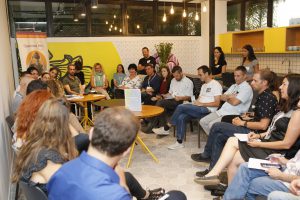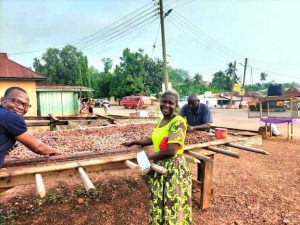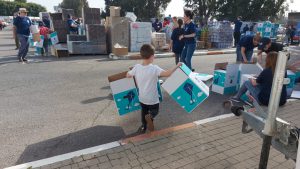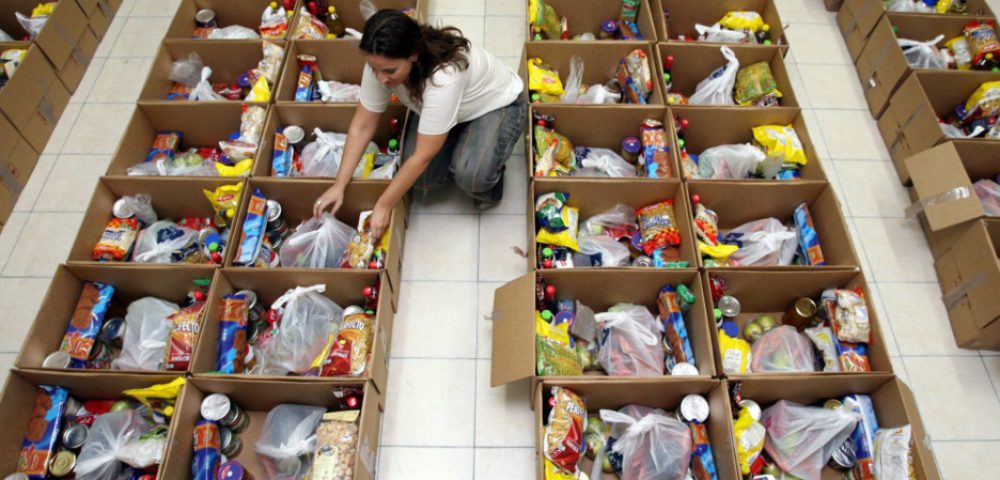No Poverty


SDG 1- Can We Overcome Poverty? An Inside Look Into ‘’Latet’’
“You grow up fast when you realise the reason your parents don’t give is not because they don’t love you.”
An inside look into poverty from Latet (To Give).
Meet Almog. She has been receiving help from Latet since she was just six-years-old. Almog retells a story of the innocent excitement she felt to receive food from a soup kitchen without realising her economic situation. “Children shouldn’t grow up like this, it’s too much to deal with.” Like her, 1,041,000 children in Israel live below the poverty line. Luckily, for these children Latet’s food box not only provides the nutritional basics, but also sends a strong message, “there are people that understand your situation and want to help you.”
What’s quite remarkable is Latet’s infrastructure of food collection and distribution. Their Nutritional Security and Food Rescue initiatives were developed with the aim to reduce nutritional insecurity living in severe poverty-stricken areas. They have done this by rescuing, salvaging, collecting and distributing food. Food collection is at a national level and then redistributed through local NGOs to 60,000 families in need every month.
Over the last 20 years Latet have become an Umbrella for 180 aid associations and municipalities across 105 communities. This not only serves as a support network to influence potential change in government policy, but these connections have also allowed them to create an expansive infrastructure. With a budget of $20,106,000 Latet are able to:
- Reach 80% of the food industry in Israel enabling them to distribute $28m worth of food per year.
- Rescue surplus edible food from retailers and manufacturers, such as Osem and Unilever
- Acquire basic food products from leading wholesalers
- Run public food drive campaigns
- Collaborate with leading live TV shows for by-annual telethons
As well as commercial distribution, volunteering has played a crucial part in the Latet infrastructure. In 2018, 19,094 volunteers joined various aid programmes and activities providing 452,420 hours of voluntary service worth $1,900,00. Of course, that’s not including the 2600 employees who packed 28,000 food boxes!
A regular model of volunteering is not enough though, Latet have taken Israel’s spark of innovation and used it were it matters most, the youth. With an emphasis on youth from low socioeconomic background and those at risk, Latet Youth was born. The idea has been to foster the young generation, creating the right infrastructure for leadership and social entrepreneurship in local communities for years to come.
Take Amani Abu Hamid, a 12th Grade girl from Kisra Sumei a Druze village. Amani’s father has epilepsy and is unable to work. In order to survive, at 12 years old Amani stared her first job earing 2000nis ($551) a month, whilst being in school. Asked where she drew her strength from, she answered, not only her father but, her ability to volunteer for Latet Youth. Instead of being defined by their past, 6th-12th Graders across 50 different cities, are turning their difficult up-bringing into a source of strength. With an annual budget of $1,140,000, 250 volunteers, 120 new groups forming each year, grassroot projects like this serve approximately 2,500 participants amounting to 34,100 annual volunteer hours. Using Amani’s words, Latet’s message is clear all round, “we can reduce poverty.”
Related articles


SDG 1- Hackaveret – Combating the cycle of poverty with innovative projects
No Poverty Every community has a portion of the population that comes from a disadvantaged background. At-risk youth, people with disabilities, financially strapped elderly, and


SDG 1 – Using Blockchain to Help African Farmers
No Poverty According to the UN, more than 1 billion people have been lifted out of extreme poverty since 1990. But at the global level


SDG 1 – Resilient Safety Net
No Poverty The Government’s changing of the guard has undeniably had some unpleasant incidents. But there was at least one beautiful instant demonstrating that Israel’s




















